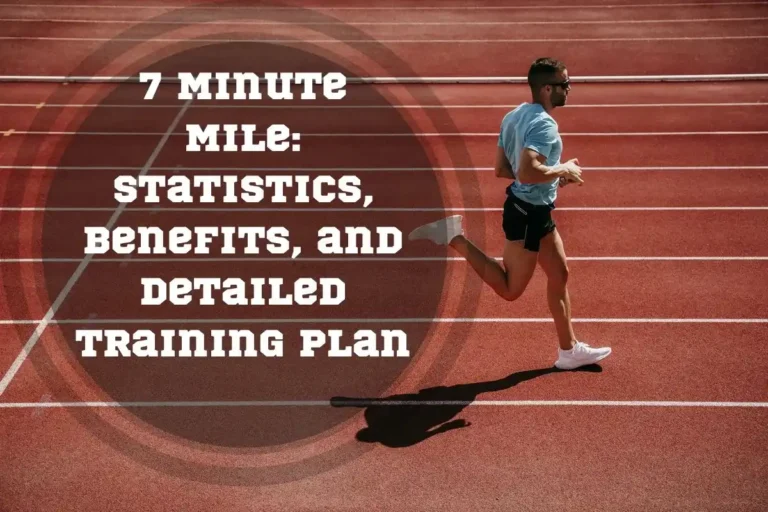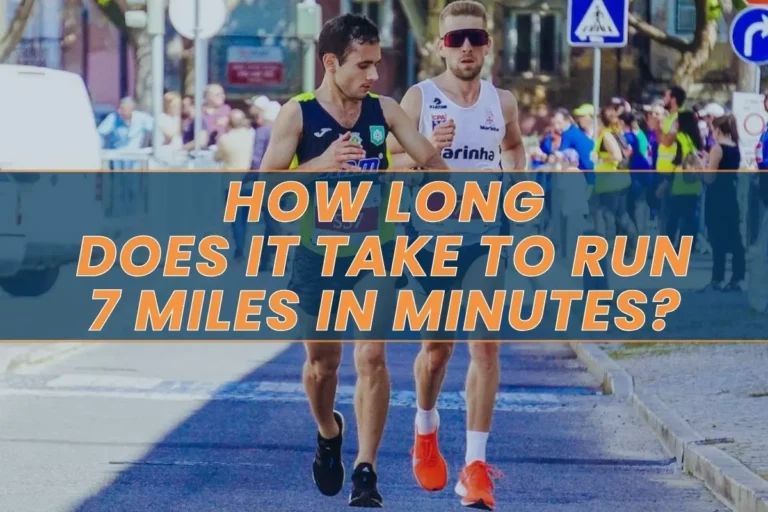How Far is 9000 Steps? Unraveling the Distance
How far is 9000 steps? It sounds like a lot, but then, one step isn’t a huge distance, so maybe walking or running that distance isn’t a big deal?
Actually, 9000 steps is a pretty significant amount and a lot of people make walking this distance their daily goal. It’s important to find ways to remain active, especially if you have an office job and spend most of your day sitting down and staring at a computer screen.
If 9000 steps is your goal, too, the first thing you need to know is precisely what that means, and then you’ll also need some tips on how to tackle it.
Lace up and let’s see what we’re working with here!
How far is 9000 steps?
The distance depends on the length of the stride, but on average, it’s approximately 4 to 5 miles (6.4 to 8 kilometers).
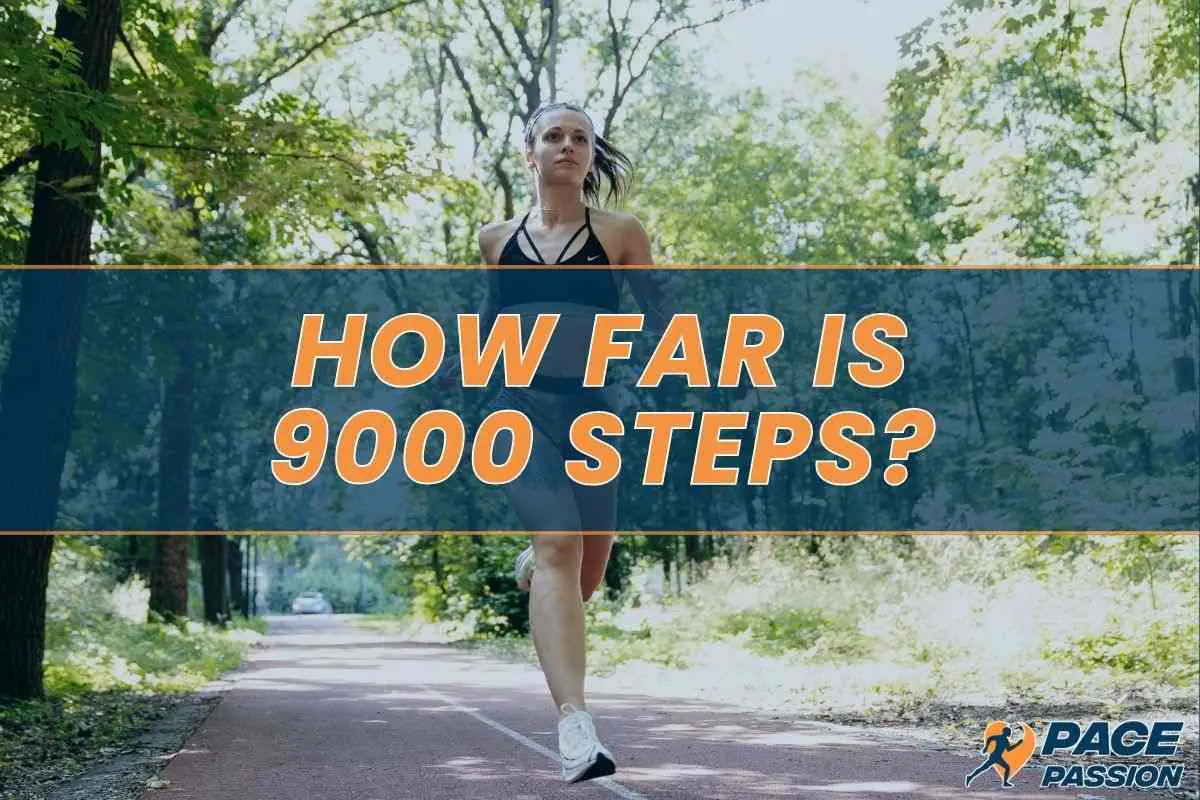
How Many Steps in a Mile?
It would be great to just get a number on just how much is 9000 steps and what distance you cover, but there’s just too many factors at play here – the length of your stride and gender being the most important ones.
On average, one mile translates to approximately 2000 to 2500 steps. But keep in mind that this depends on your physiology, stride, and walking pace. Women generally have slightly shorter strides than men, so biology plays a part too, and they will have to make slightly more strides than men.
If we’re talking in metric terms, one kilometer involves around 1240 to 1560 steps although, once again, this depends on the factors mentioned above.
But in essence, this is more than just a bunch of numbers on the pedometer. The diversity in walking styles and preferences adds richness to the narrative of staying active and healthy.
How Long Does It Take to Run 9000 Steps?
Running is one of the healthiest ways to stay active, and being able to run 9000 steps is quite an accomplishment. We’ll convert 9k steps to miles a little later, but as far as how long it will take you to do that, the answer is – it depends. What gender are you, how fast are you running, how tall are you, what is the length of your stride… There’s a few things that you need to consider before you can calculate how long it will take you to do this.
Men will usually need fewer miles compared to women because of their longer stride, which directly influences the time it takes to complete 9000 steps. There’s also the matter of speed. If you’re a recreational runner, an average pace might range from 5 to 6 miles per hour (8 to 9.66 kilometers), and at this speed, you’ll need 45 minutes to an hour to complete 9000 steps.
Height is another important factor because taller people with longer legs can cover more distance with each step and they can be faster, which can decrease the overall time and increase the miles you cover in 9000 steps. On the flip side, shorter people will cover less distance over the same number of steps.
So, you see, this is highly individualized, and although knowing average numbers can give you an estimate, the actual time, distance, and effort you need to put in running 9000 steps differs from person to person.
| FACTOR | IMPACT ON RUNNING 9000 STEPS |
|---|---|
| Sex | Men will cover more distance due to longer strides, while women will need more time to complete 9000 steps |
| Height | Taller people will cover more distance per step and potentially reduce the time to complete 9000 steps |
| Running Speed | Average speeds (5-6 mph or 8-9.55 km/h) translate to closely 45-60 minutes to complete 9000 steps |
| Stride Length | Varies by person, directly affects distance covered and time taken |
How Long Does It Take to Walk 9000 Steps?
This is a matter of individual factors and general estimates. Much like running and calculating how many miles is 9k steps, walking 9000 steps depends on factors that vary from person to person.
In average terms, covering one mile takes about 2000 to 2500 steps, so converting 9000 steps to miles comes down roughly to 3.6 to 4.5 miles, with sex, height, and walking speed affecting the timeframe. Some studies have suggested that men walk slightly faster than women, and there’s also the pace. We all have a different pace we like to walk at and what is a leisurely stroll for you can be too fast for someone else, so this factor varies a lot. There’s the question of age, as well. If you’re younger, it’s safe to assume you’ll walk faster than someone older because young and old people differ a lot when it comes to muscle strength and endurance. Tall people have longer legs, so their strides are longer, meaning they will need less time than someone short to cover 9000 steps.
If you prefer kilometers, covering one mile usually involves around 1.24 to 1.56 kilometers, so that translates to 5.8 to 7.3 kilometers to complete 9000 steps.
If we take an average pace of 3.1 miles per hour (5 km/h), it will take 1.2 to 1.5 hours to cover 9000 steps. This, of course, is a general estimate, but it’s enough to give you an idea of how long your walk might last if you’re set on completing 9000 steps.
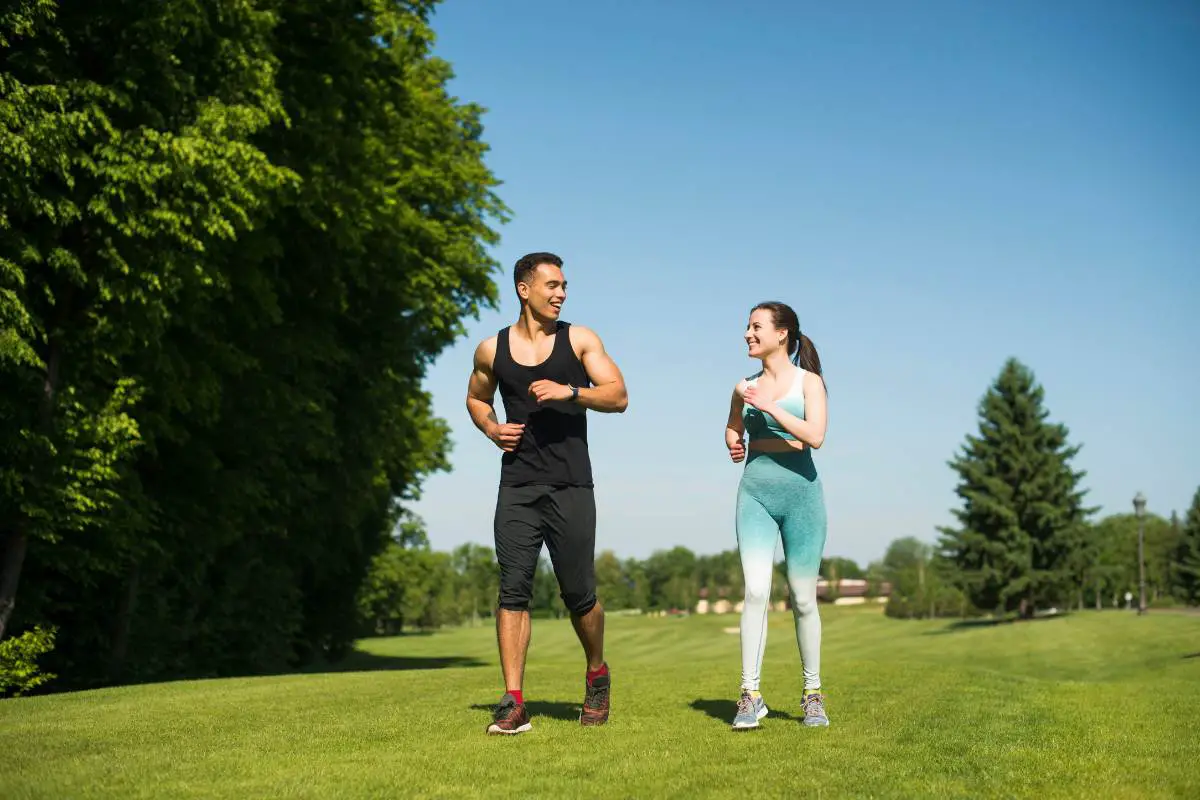
1. Brisk Walk
If you want to cover 9000 steps through a brisk walk, you’ll notice that your heart rate and breathing increases quite a bit. Since you’re walking at a faster pace, this energetic stroll will have some cardiovascular benefits, and you’ll need 1 to 1.3 hours to complete 9000 steps.
2. Leisurely Stroll
This is more relaxed than a brisk walk and the pace is comfortable. It’s a gentle form of exercise that will allow you to enjoy your surroundings. And you’ll have more than enough time to do so because you will need between 1.3 and 1.6 hours for 9000 steps.
3. Power Walk
A power walk feels more like working out than walking and its pace is pretty fast. It engages more muscle groups and it’s a really effective exercise. You’ll be power walking for 0.9 to 1.2 hours to complete 9000 steps.
Subscribe to Our Running Newsletter!
Get free running tips from renowned professional athletes and discounts from top-notch brands.
4. Hiking
If you are walking on natural paths or trails with changes in elevation, you’ll get all the benefits from walking plus you’ll be exposed to nature. You will need approximately 1.5 to 2 hours to get to 9000 steps, which is a decent amount of time and apart from your physical health, your mental health also loves long walks.
5. Interval Walking
Add some variety and intensity to your walk to get more fitness benefits and alternate between periods of slow-paced walking with brisk walking. It’s almost impossible to tell how much time it will take you to cover 9000 steps because it heavily depends on your pace and intervals, but you’ll definitely get a good workout.
| TYPE OF WALK | DESCRIPTION | TIME REQUIRED |
|---|---|---|
| Average Walk | Based on average pace of 3.1 mph (5 km/h) | 1.2 to 1.5 hours |
| Brisk Walk | A faster pace that increases heart rate and breathing, has cardiovascular benefits | 1 to 1.3 hours |
| Leisurely Stroll | Comfortable, relaxed pace | 1.3 to 1.6 hours |
| Power Walk | Fast pace that engages more muscle groups, effective workout | 0.9 to 1.2 hours |
| Hiking | Walking on natural paths and trails with changes in elevation | 1.5 to 2 hours |
| Interval Walking | Alternating between slow-paced and brisk walking | Varies depending on pace and intervals |
How Can You Calculate 9000 Steps In a Mile?
Before you can calculate 9000 steps in a mile, you’ll need to understand the length of your stride (the average for males is 2.8 ft and 2.5 ft for females). The easiest way to do that is with the “heel-to-toe” approach, where you measure the distance that’s covered in a set number of steps and then extrapolate that to 9000 steps.
After you have your stride length, you can use the following formula to calculate how many miles 9000 of your steps are:

These days, the most popular way to keep track of anything fitness-related is with gadgets and apps. Smartwatches or fitness trackers are becoming more and more popular because of their accuracy. They have sensors that detect motion, and they are a great way to measure, among other things, the number of steps you take.
Of course, the gadgets are an added expense and not everyone wants that, especially if the only thing you want to do is keep track of the number of steps you take.
If that’s the case, you can download one of the many apps that will keep track of your steps, and some phones (like iPhones) come with the apps already installed, so you won’t need to do anything to get to them. Since your phone is (usually) with you when you leave the house, it can be a practical way to measure the steps, and you don’t need to take an extra device with you.
Distance Calculator: How Many Miles In 9000 Steps?
You can use our calculator to determine how many miles are in 9000 steps depending on your height and gender. The calculator is based on a formula for calculating the distance depending on the average step length and height of the runner.
Distance Calculator
Result:
How to Achieve the Result of 9000 Steps for Running: 5 Tips
Running is extremely healthy, but don’t expect to be able to run 9000 steps overnight. This is something you will need to work up to gradually, but we have a few shortcuts to help you get there faster.
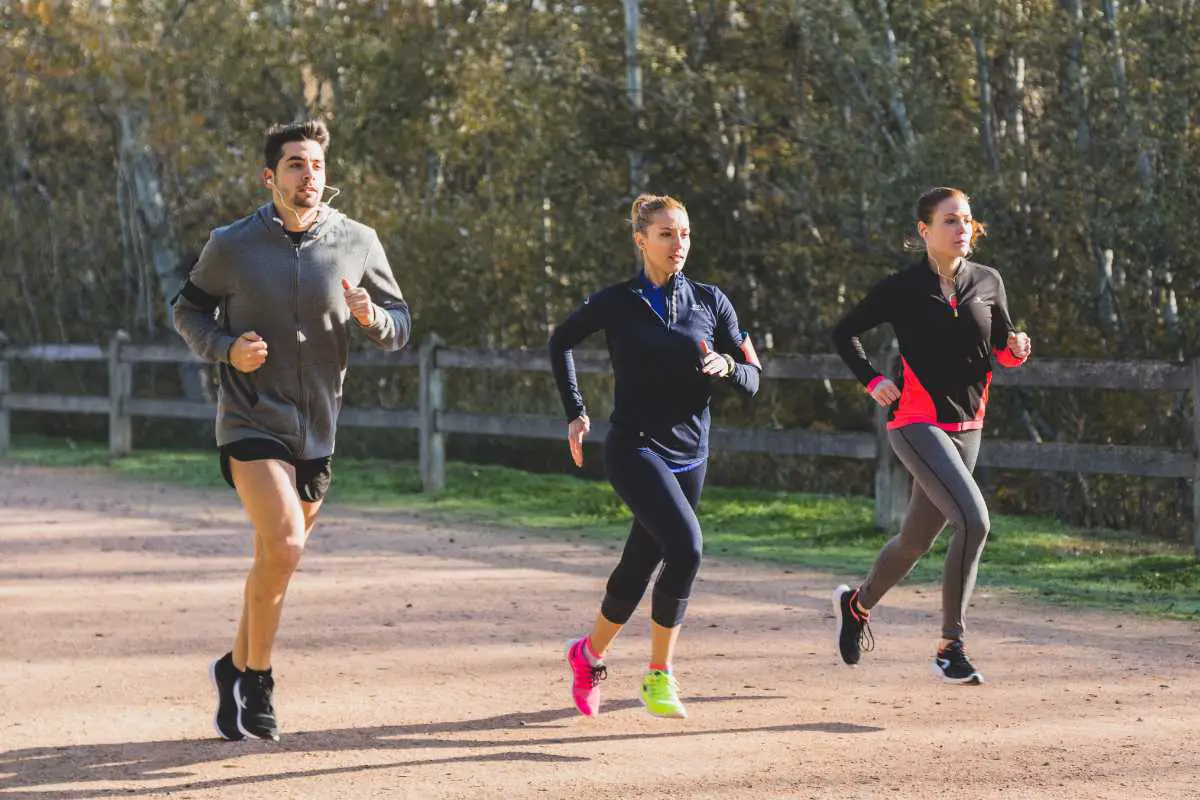
1. Be Realistic
If you want to be able to run 9000 steps within a week of starting, you’ll get disappointed, your motivation will dwindle, and you’ll end up quitting altogether. To prevent that, set a realistic milestone and increase your daily step count little by little. Not only will this keep you motivated, but it will prevent injuries and overexertion.
2. Consistency is Everything
Consistency is key with almost everything you want to achieve. Dedicate specific times for your run and stick to it. When you’re consistent, you develop a habit, so it’s easier to get to your goal.
3. Interval Training
Alternating between periods of higher intensity and moderate activity will boost calorie burn and add variety to your workout. This will make it more fun and engaging.
4. Use a Fitness Tracker
Whether it’s a separate gadget or an app on your phone, seeing the number of steps you’ve covered that day will keep you motivated and on track towards achieving 9000 steps.
5. Varied Terrains
Mix it up by exploring different terrains. You can go for a run through nature or a jog in the city. The point is that varied surfaces will engage different muscle groups and make your run less monotonous.
FAQ
How many calories are burned in 9000 steps?
How many calories is 9000 steps depends on things like weight, intensity, and your metabolism. If you weigh around 155 pounds, you can burn roughly 400-500 calories by taking 9000 steps.
Does walking 9000 steps reduce belly fat?
You can’t target the areas where you lose fat, so walking (regardless of the amount) won’t just target your midsection, but it’s a great way to manage weight. If you combine regular physical activity with a balanced diet, you will get a calorie deficit, which will promote overall fat loss.
Is walking 9000 steps a day good?
Walking is generally good, even if you don’t get to the 9000 steps. But if you do, it will promote cardiovascular fitness, weight management, and mental well-being. This level of activity aligns with recommended daily step goals so walking 9000 steps a day isn’t just good – it’s ideal.
Conclusion
We’ve covered all there is to this subject – how many miles is 9000 steps, how to keep track, and what to consider. 9000 steps a day is an accomplishment, but it brings so many health benefits, that there’s really no reason why you wouldn’t want to give it a try. Whether you’re running or walking, the most important thing is that you’re active.
Get a fitness tracker or an app to keep you motivated because the number of steps just hits differently when you see them staring at you from the screen. The sense of accomplishment is what will help you stay on track and get to those 9000 steps faster than you think.
What’s your take on this? Do you struggle to get your 9000 steps a day? If you’ve managed to walk or run for that amount, how did you get to it and what kept you motivated? Do you have shoes to recommend that make walks or runs easier on your joints?
Any kind of feedback is welcome, and if you have a question or suggestion, we look forward to that, too!
Now I’m off to get my 9000 steps a day in!
References:
- Ardelia Citra Videla, Ayly Soekanto, Sudibjo, Salmon Charles P.T. Siahaan “Effect of Leg Length With 100m Sprint Running Speed on The Men’s Soccer Team at SMA 1 Mataram,” International Journal of Scientific Advances 3, no. 4 (Jul – Aug 2022).
- Janelle Wagnild and Cara M Wall-Scheffler “Energetic consequences of human sociality: walking speed choices among friendly dyads,” PLoS One 8, no. 10 (2013): e76576.
- Katherine Zeratsky, R.D., L.D. “Can I lose weight if my only exercise is walking?,” Mayo Clinic, https://www.mayoclinic.org/healthy-lifestyle/weight-loss/expert-answers/walking/faq-20058345 (accessed February 6th, 2024).
- Martin Mau, Anders Aaby, Søren Harnow Klausen, and Kirsten Kaya Roessler “Are Long-Distance Walks Therapeutic? A Systematic Scoping Review of the Conceptualization of Long-Distance Walking and Its Relation to Mental Health,” International Journal of Environmental Research and Public Health 18, no. 15 (2021): 7741.
- Vicki-Marie Cossar “These are the real benefits of running, according to the science,” LiveScience, https://www.livescience.com/these-are-the-real-benefits-of-running-according-to-the-science (accessed February 6th, 2024).
- Photo by Freepik; Photo by Ketut Subiyanto from Pexels.
If you have any questions or suggestions, you can contact us via email – [email protected]



